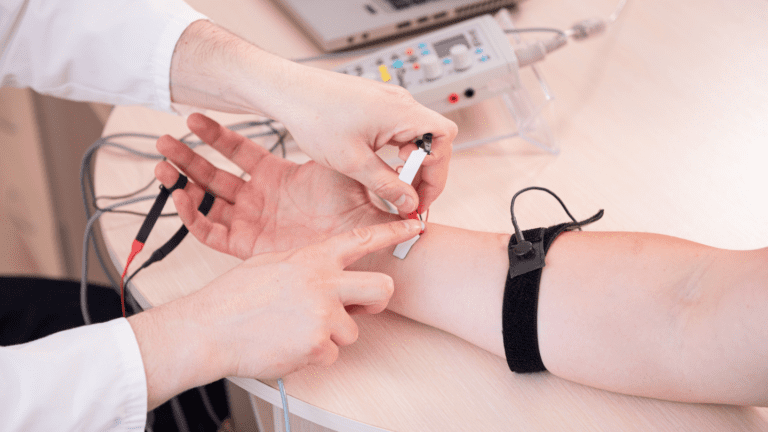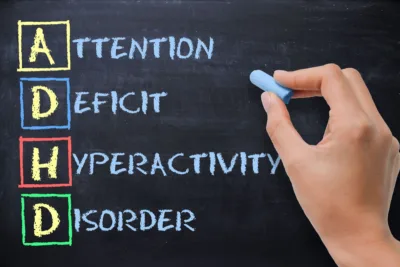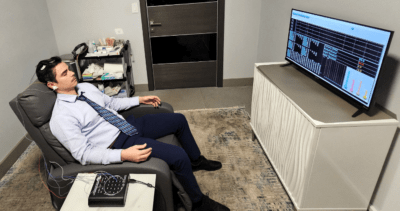A Deep Dive into EMG Test: Decoding the Language of Muscles and Nerves
Integrative Care for Concussion / Head Injury Sufferers
in Ft. Lauderdale, Tampa, and Orlando, Florida
Electromyography (EMG) is a diagnostic procedure that plays a crucial role in unraveling the intricacies of the neuromuscular system. By measuring the electrical activity within muscles and the nerves controlling them, EMG provides valuable insights for the diagnosis and management of various neuromuscular disorders. In this article, we will delve into the principles, procedures, and applications of EMG to better understand its significance in clinical practice.

Principles of Electromyography (EMG) Test
At its core, EMG is grounded in the study of the electrical signals generated by muscles during rest and contraction. These electrical signals, known as action potentials, are the result of the intricate communication between nerves and muscle fibers. Understanding the principles of EMG involves exploring how these signals are generated and how their patterns can offer valuable information about the health of the neuromuscular system.
Muscle Action Potentials: When a muscle contracts, it produces electrical activity. This action potential is a fundamental component of EMG and reflects the synchronized activation of muscle fibers.
Nerve-Muscle Communication: The nerves control muscle movement by sending electrical signals to muscle fibers. EMG captures these signals, offering a window into the communication between nerves and muscles.
The EMG Test Procedure
Needle Electrode Placement:
The EMG procedure involves the insertion of thin, needle-like electrodes into specific muscles. These electrodes act as sensors, detecting the electrical activity produced by the muscle and nerve cells.
Resting and Active States:
During the procedure, the patient is asked to remain at rest and perform controlled muscle contractions. These contractions may involve activities such as flexing or extending a limb, depending on the muscles under examination.
Signal Recording and Analysis:
As the patient performs these actions, the EMG machine records the electrical signals. The resulting data is then analyzed to assess the amplitude, duration, and frequency of the muscle action potentials, providing valuable information about the health and function of the muscles and nerves.
Applications of Electromyography (EMG)
EMG serves a multitude of purposes in the realm of neurology and musculoskeletal medicine. Its applications extend beyond mere diagnosis, playing a crucial role in treatment planning and monitoring disease progression. Here are some key applications:
Neuromuscular Disorder Diagnosis: EMG aids in diagnosing a range of neuromuscular disorders, including muscular dystrophy, myasthenia gravis, and motor neuron diseases.
Localization of Lesions: By pinpointing the source of abnormal electrical activity, EMG helps healthcare providers localize nerve lesions, guiding further diagnostic and therapeutic interventions.
Assessment of Treatment Efficacy: For individuals undergoing treatment for neuromuscular conditions, EMG can be employed to monitor changes in muscle and nerve function over time, gauging the effectiveness of therapeutic interventions.
Who Needs EMG Test?
An Electromyography (EMG) test is typically recommended for individuals experiencing symptoms related to muscle or nerve dysfunction. While it is not a direct diagnostic tool for traumatic brain injury (TBI), an EMG can be beneficial in certain situations, especially when TBI symptoms extend to the neuromuscular system. Here are scenarios where an EMG test may be relevant and how it can assist TBI patients:
Muscle Weakness or Atrophy: Individuals experiencing unexplained muscle weakness or atrophy may undergo EMG testing to identify the underlying cause, which could be nerve damage or muscle disorders.
Numbness or Tingling: EMG can be recommended for those with symptoms of numbness, tingling, or a “pins and needles” sensation, which may be indicative of nerve compression or dysfunction.
Unexplained Pain: Persistent or unexplained pain in the muscles or nerves may prompt a healthcare provider to order an EMG to investigate the source of discomfort.
Neurological Symptoms: Patients with neurological symptoms such as difficulty in coordinating movements, tremors, or muscle spasms may benefit from EMG testing to assess the integrity of the neuromuscular system.
How Can EMG Patients with Head Injury?
While TBI primarily affects the brain, its consequences can extend to other parts of the body, including the muscles and nerves. Here’s how an EMG test can be beneficial for TBI patients:
Identifying Peripheral Nerve Damage: TBI can sometimes lead to peripheral nerve damage, especially in cases involving trauma or injury to the head and neck. EMG can help identify and assess the extent of nerve damage in these regions.
Assessing Neuromuscular Function: TBI can disrupt the communication between the brain and muscles. EMG evaluates the electrical activity in muscles, providing insights into the functionality of the neuromuscular system.
Detecting Secondary Complications: TBI patients may develop secondary complications, such as muscle stiffness or contractures due to immobility. EMG can assess the impact of these complications on muscle function and guide rehabilitation strategies.
Guiding Rehabilitation: For TBI patients undergoing rehabilitation, EMG results can inform healthcare providers about specific muscle groups that may require targeted interventions. This information can contribute to the development of personalized rehabilitation plans.
It’s important to note that while EMG can provide valuable information about neuromuscular function, it is not a standalone test for diagnosing TBI. The diagnosis of TBI typically involves a combination of clinical evaluations, imaging studies (such as CT scans or MRIs), and sometimes neuropsychological assessments. EMG is recommended when there are specific indications of muscle or nerve involvement that may be related to or exacerbated by the effects of TBI. Patients should consult with their healthcare providers to determine the most appropriate diagnostic and treatment approaches based on their individual circumstances.
Electromyography is a powerful diagnostic tool that provides a detailed understanding of the intricate interplay between muscles and nerves. Its ability to capture and interpret electrical signals opens a window into the neuromuscular system, facilitating accurate diagnosis and informed treatment decisions. As technology continues to advance, EMG will likely play an even more pivotal role in the evolving landscape of neurology and rehabilitation medicine, offering new avenues for understanding and addressing disorders affecting the muscles and nerves.
Blogs

Identifying Personal Injury Risks and Traumatic Brain Injury at Radius TBI
Accidents can cause life-altering consequences, including traumatic brain injury (TBI). At Radius TBI, with locations in Ft. Lauderdale, Tampa, and Orlando, Florida, we prioritize early detection and comprehensive care for those who may have suffered a TBI. Protect your brain

What is the most effective ADHD treatment program?
At Radius TBI, we firmly believe in the power of an integrated approach to ADHD treatment. Our brain doctors combine neurofeedback therapy, CBT, and brain mapping to provide comprehensive care that addresses the multifaceted nature of ADHD. By combining these

Dr. Eric F. Ciliberti: Our Best Neuro-ophthalmologist in Broward, County Location
Optimizing Visual Health: Meet Top Neuro-Ophthalmologist in Broward. Discover how Dr. Ciliberti enhances visual health at Radius TBI in Florida.

Unlocking the Potential of Your Brain with Neurofeedback
Do you experience anxiety, ADHD, depression, or sleep disorders? Neurofeedback can help you feel better overall and reduce the symptoms of these conditions. In this blog post, we’ll discuss what neurofeedback is, how it works, and its potential advantages for

Understanding the Causes and Integrated Medical Care for Bump on the Back of the Head
Discovering a bump on the back of the head can be concerning, especially for individuals who have previously experienced head injuries. At Radius TBI in Ft. Lauderdale, Tampa and Orlando, Florida, patients who have suffered head injuries can benefit from

The Road to Brain Recovery: Identifying the Best Neuropsychologist in Broward County, FL
The Road to Brain Recovery with Dr. Esther Misdraji: Identifying One of the Best Neuropsychologist in Broward County, FL

